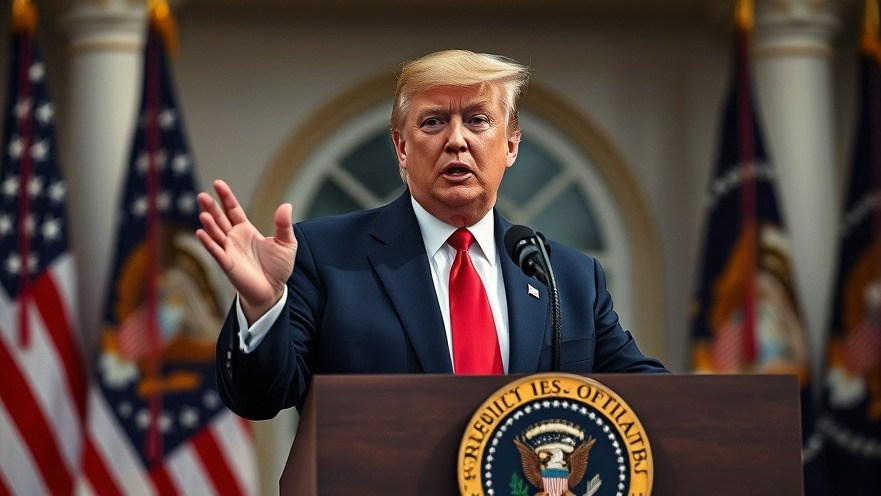
Trump's Tough Tariffs: A New Trade Strategy?
In a bold move, former President Donald Trump has issued threats to impose 25% tariffs on key trading partners, namely Japan and South Korea. This potential economic shift raises concerns for many, particularly in the franchising world where operational efficiency and budgeting depend heavily on stable international trade relations.
Understanding Tariffs: What You Need to Know
Tariffs are taxes imposed on imported goods, aimed at encouraging domestic production and reducing foreign competition. For franchisors, such fiscal policies can directly impact inventory costs and pricing strategies, which in turn affects franchisee performance. By hitting Japan and South Korea with high tariffs, Trump could be aiming to shift trade dynamics and protect American jobs, but these moves also risk escalating trade wars, which can destabilize market conditions.
The Impacts on Franchising Businesses
For franchisors operating in the international marketplace or sourcing products from these countries, an increase in tariffs translates to higher costs. This, in turn, forces them to reevaluate their pricing strategies and operational processes to maintain profitability. Moreover, franchisees may struggle to keep their shelves stocked at affordable prices, leading to potential declines in customer satisfaction and sales.
Benefits and Risks of Tariff Policies
While the intention behind tariffs is often to boost domestic industries, it is important to consider the broader implications. For example, higher tariffs could encourage local manufacturing, but with delays and budget strains for existing franchises. Additionally, retaliatory measures from affected countries could lead to a cycle of increased costs and limited market accessibility. Franchisors must analyze these risks and weigh them against the benefits of repositioning their supply chains and operational strategies.
The Importance of Monitoring Economic Policies
To optimize operational efficiency, franchisors should stay updated on evolving trade policies and market conditions. Employing technology trends, like supply chain analytics, can help in making data-driven decisions. By anticipating changes in costs due to tariffs, franchisors can implement strategies that boost brand consistency and enhance overall franchisee performance, safeguarding their business against unpredictable economic landscapes.
Future Trends in Trade and Franchise Operations
As we look ahead, franchisors must prepare for potential changes in international trade policies. Continuous engagement with economic forecasts and adapting strategies to mitigate impacts will be crucial. Implementing flexibility in supply chains and enhancing relationships with multiple suppliers can create a cushion against tariff-induced price hikes. By prioritizing adaptive strategies, franchisors can turn challenges into opportunities for growth.
Final Thoughts: Being Proactive in a Shifting Trade Landscape
In conclusion, the potential for steep tariffs on important trading partners poses both challenges and opportunities for franchisors. By staying informed and harnessing technological advancements, franchisors can not only maintain consistency but also strategically pivot in response to the evolving trade landscape. This proactive stance is key to thriving in an increasingly competitive market.
 Add Row
Add Row  Add
Add 






Write A Comment